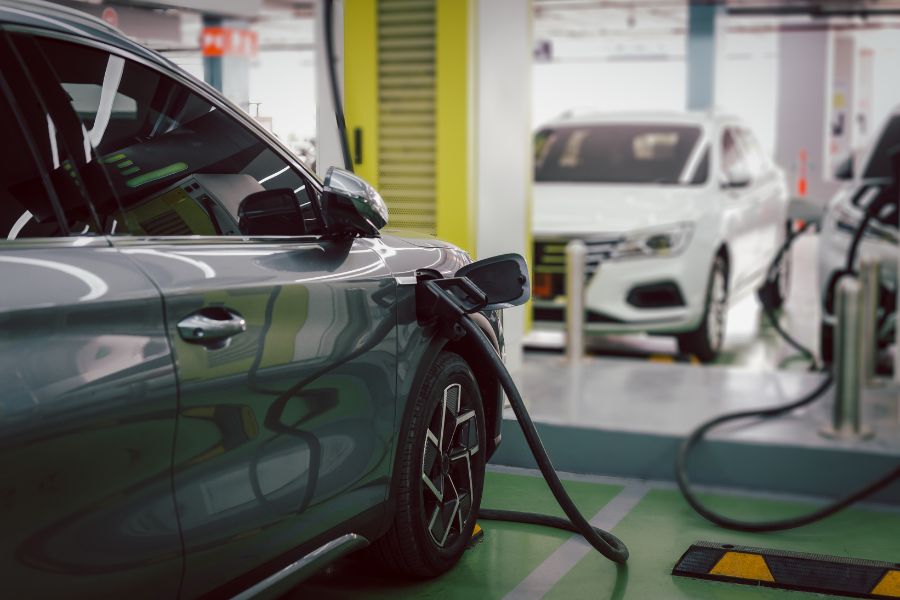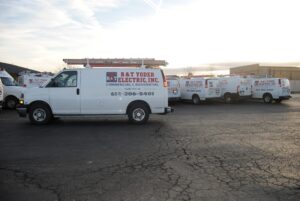
The Rise of Electric Vehicles and the Need for EV Charger Installation
The global automotive industry is undergoing a significant transformation as electric vehicles (EVs) become increasingly popular. With concerns about environmental sustainability, fluctuating gas prices, and technological advancements, more consumers are choosing EVs over traditional combustion-engine vehicles. This shift is driving a growing demand for convenient, reliable EV charger installation services for homes and businesses.
Owning an electric vehicle without an at-home or on-site charging station can be inconvenient, especially when relying solely on public charging infrastructure. Public stations are often busy, less accessible, and more expensive in the long run. Installing a personal EV charging station provides unparalleled convenience, efficiency, and cost-effectiveness.
The Importance of Professional EV Charger Installation
While EV chargers might seem like simple devices, their installation requires expertise and precision. Unlike plugging in a household appliance, setting up an EV charger involves electrical panel assessments, wiring upgrades, and compliance with local building codes.
🔍 Why Professional Installation Matters
- Safety Assurance
Incorrect wiring can lead to electrical malfunctions, shocks, or even fires. Certified professionals follow industry standards to ensure safe installation. - Code Compliance
Electrical codes vary by location, and non-compliance can result in fines or insurance complications. Professionals are familiar with these regulations and secure necessary permits. - Optimal Performance
Proper installation ensures the charger delivers consistent, efficient charging without risking damage to the vehicle’s battery. - Equipment Longevity
Well-installed chargers last longer and require fewer repairs, providing a better return on investment. - Warranty Protection
Some EV charger manufacturers mandate professional installation to maintain warranty coverage.
Types of EV Chargers: Choosing the Right One for Your Needs
Not all EV chargers are the same. The right charger depends on usage patterns, vehicle requirements, and available electrical infrastructure.
1. Level 1 Chargers
- Voltage: 120V
- Charging Speed: 3-5 miles of range per hour
- Ideal For: Overnight charging at home
- Pros: No special installation required; uses standard outlets
- Cons: Slow charging time; not suitable for frequent long-distance drivers
Example: A Level 1 charger can fully charge a Nissan Leaf overnight if it’s used primarily for short daily commutes.
2. Level 2 Chargers
- Voltage: 240V
- Charging Speed: 12-60 miles of range per hour
- Ideal For: Daily use at home or work
- Pros: Faster charging; compatible with most modern EVs
- Cons: Requires professional installation and potential electrical upgrades
Example: A Tesla Model Y can charge from empty to full within 6-8 hours with a Level 2 charger.
3. DC Fast Chargers (Level 3)
- Voltage: 400-900V
- Charging Speed: 60-300 miles of range per hour
- Ideal For: Commercial use or EV fleets
- Pros: Extremely fast charging
- Cons: Expensive; requires specialized infrastructure
Example: DC Fast Chargers are common at highway rest stops, allowing drivers to recharge in 30-60 minutes.
Step-by-Step EV Charger Installation Process
Installing an EV charger involves several stages that require technical expertise. Here’s a detailed look at the process:
1. Site Assessment and Planning
- Evaluate the current electrical panel capacity.
- Identify the best location for the charger, ensuring proximity to the EV and accessibility.
- Calculate anticipated energy demand to avoid circuit overloads.
2. Electrical Upgrades (If Necessary)
- Many homes and businesses need panel upgrades to support the charger’s power requirements.
- Installation of a dedicated 240V circuit for Level 2 chargers.
- Ensure compatibility with smart meters and load-sharing systems for multiple chargers.
3. Charger Installation
- Mount the charging station securely to a wall or pedestal.
- Connect the charger to the electrical supply, following the manufacturer’s guidelines.
- Install any required conduit and protective covers to shield wiring from environmental damage.
4. Testing and Inspection
- Conduct initial tests to verify charger performance.
- Check for consistent power output and communication with EVs.
- Schedule an inspection with the local building authority if required.
5. User Training and Setup
- Demonstrate how to operate the charger.
- Explain safety protocols and maintenance requirements.
- Assist with connecting the charger to mobile apps for smart monitoring.
The Environmental Impact of EV Charger Installation
Electric vehicles are more than a technological advancement—they represent a crucial step toward a sustainable future. Personal EV chargers encourage greater adoption of electric vehicles by making charging more accessible and convenient.
Key Environmental Benefits:
- Reduced Greenhouse Gas Emissions: EVs produce zero tailpipe emissions.
- Lower Energy Consumption: Smart chargers optimize charging during off-peak hours, reducing grid strain.
- Increased Renewable Integration: Home EV chargers can integrate with solar power systems.
EV Charger Installation for Businesses
Businesses can benefit significantly from installing EV charging stations. As more employees and customers drive electric vehicles, the availability of on-site charging becomes a competitive advantage.
Advantages for Businesses:
- Attracting Customers: EV drivers often choose businesses with charging options.
- Employee Satisfaction: Offering charging stations boosts morale and demonstrates environmental responsibility.
- Revenue Opportunities: Publicly accessible chargers can generate income through pay-per-use models.
Residential EV Charger Installation: Enhancing Home Convenience
For homeowners, installing an EV charger eliminates the hassle of public charging and supports the growing need for sustainable transportation.
Why Homeowners Choose EV Chargers:
- Convenience: Charge overnight without detours.
- Cost Efficiency: Home electricity rates are often lower than public charging fees.
- Increased Property Value: EV chargers are attractive to potential homebuyers.
Common Mistakes to Avoid in EV Charger Installation
- Underestimating Electrical Load:
Failing to assess panel capacity can lead to overloads. - Improper Charger Placement:
Chargers placed too far from the vehicle require longer cables, increasing costs and risks. - Neglecting Permits:
Local regulations often require permits, and skipping this step can result in fines. - Ignoring Future Needs:
With EV adoption increasing, installing infrastructure for additional chargers is a smart move. - DIY Installation Risks:
Electrical work without proper training can lead to serious safety hazards.
Maintenance Tips for EV Charging Stations
Regular maintenance ensures efficient performance and prolongs the charger’s lifespan.
- Inspect Cables and Connectors: Check for wear and tear.
- Clean Charging Ports: Dust or debris can impede charging.
- Test Software Updates: Smart chargers often receive performance-enhancing updates.
- Schedule Annual Inspections: Professionals can identify and fix potential issues early.
FAQ Section
1. How long does it take to install an EV charger?
Installation usually takes 2-4 hours if wiring is ready. However, additional time may be needed for panel upgrades or complex installations.
2. Can I install an EV charger without upgrading my electrical panel?
This depends on the charger’s power requirements and the existing panel capacity. An electrician can assess and recommend upgrades if necessary.
3. Are home EV chargers compatible with all electric vehicles?
Most home chargers use a universal connector (J1772) compatible with all EVs except Teslas, which require an adapter.
4. How much does it cost to install an EV charger?
Costs range from $500 to $2,000 depending on charger type, electrical work, and installation complexity.
5. Can I charge my EV with solar power?
Yes, EV chargers can be integrated with solar panels to maximize energy efficiency and reduce reliance on the grid.
Transitioning to electric vehicles is an exciting step toward a cleaner, more sustainable future—but it requires the right infrastructure to maximize convenience and efficiency. Our expert EV charger installation services provide safe, reliable, and code-compliant setups for homes and businesses alike.
Don’t let charging inconveniences slow down your EV journey. Contact us today to schedule your consultation and take the first step toward effortless, eco-friendly driving.







